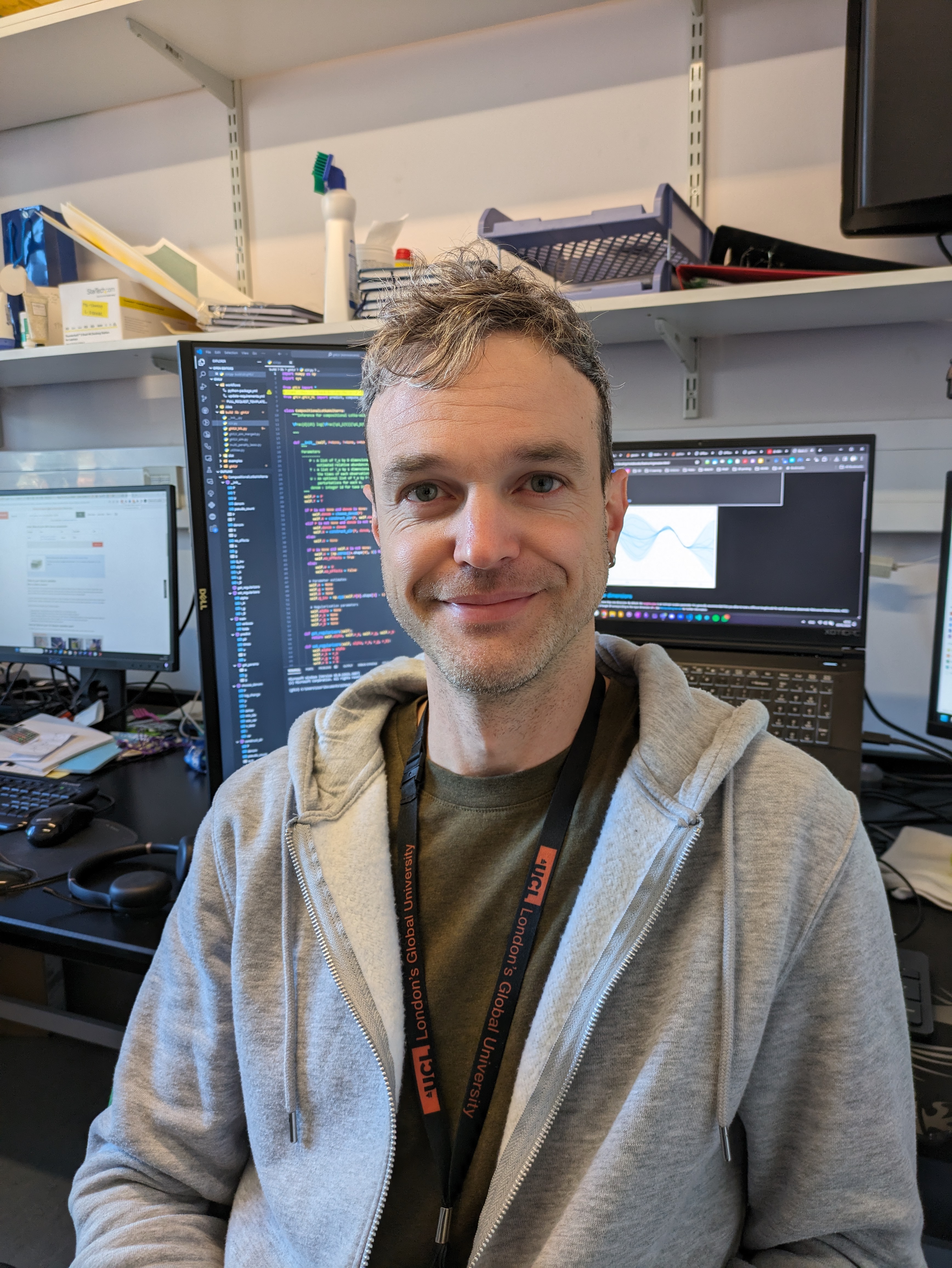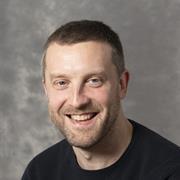Organisers
Organisers of the Data-Centric Engineering Biology Interest Group
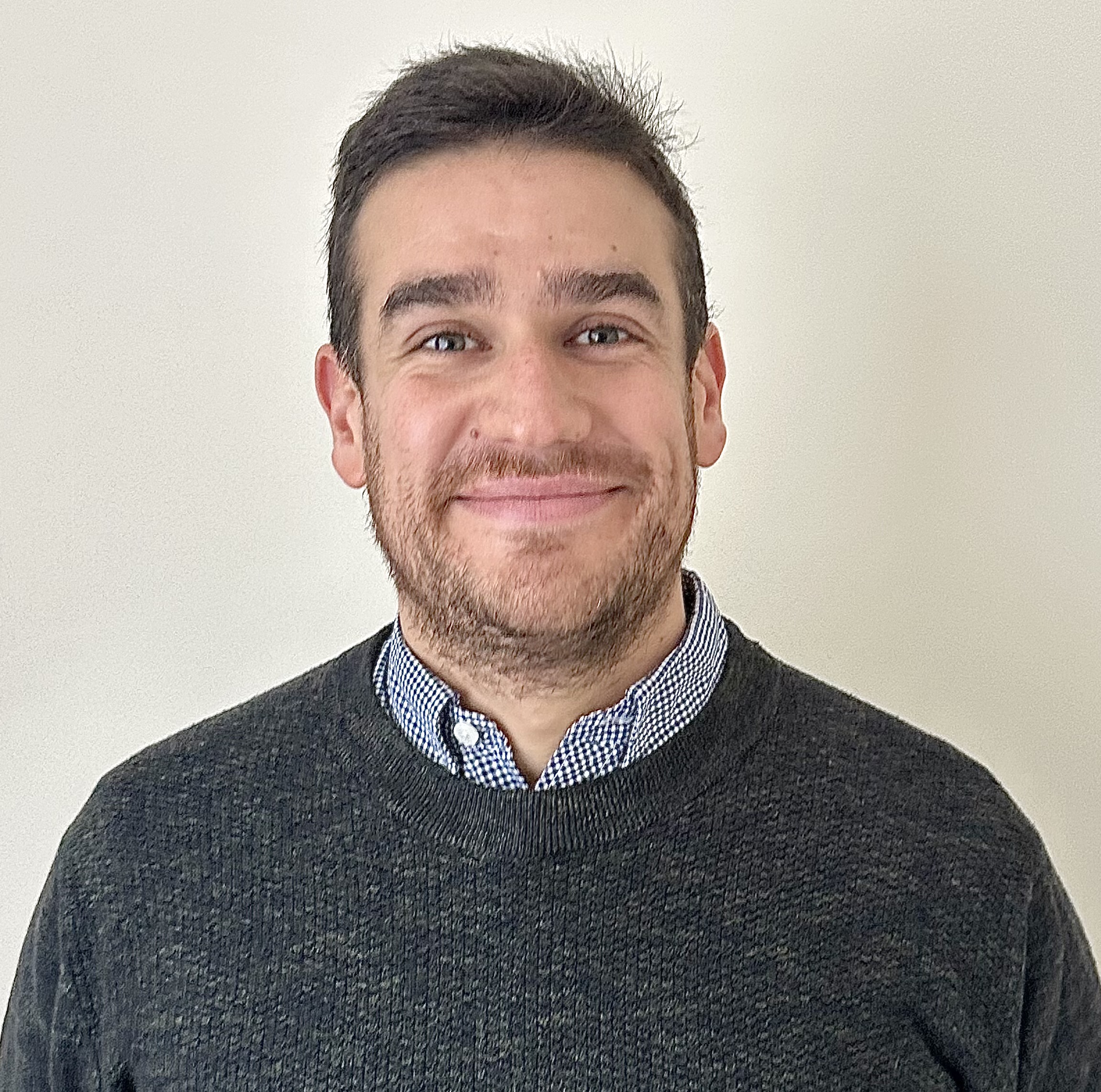
Daniel Lozano-Rojas
Daniel is a Statistician at the Leicester Biomedical Research Centre (BRC) in Respiratory Sciences. His work focuses on identify patterns to understand the underlying mechanisms of respiratory conditions through data-driven approaches. He primarily works with clinical data but also extends his research to large-scale analyses involving single-cell data, genomics, proteomics, and transcriptomics. During his professional career, he has collaborated with several industry partners on projects related to data modelling and process automation. Before joining the BRC, he completed a PhD at the University of Leicester, where he applied machine learning models to predict pneumonia outcomes, as well as an MSc in Applied Computation and Numerical Modelling, and holds a BSc in Chemical Engineering from Universidad de los Andes in Colombia.
Research Interests
Daniel’s research focuses on developing methodologies to model complex relationships within biological systems, particularly in healthcare applications. His interests include Gaussian processes, uncertainty quantification, single-cell analysis, and multimodal data integration. He specializes in pattern recognition and clustering models to identify non-linear correlations between potential biomarkers associated with respiratory conditions.
Pedro Fontanarrosa
Dr. Pedro Fontanarrosa is a Postdoctoral Research Associate at the Chris Barnes Research Group within the Computational Systems and Synthetic Biology department at University College London. Dr. Fontanarrosa’s academic journey began at the University of Buenos Aires (UBA), Argentina, where they earned both their Bachelor’s and Master’s degrees in Evolutionary Biology. Seeking to broaden their expertise, Dr. Fontanarrosa moved to the United States to pursue a Master’s in Bioengineering and a Ph.D. in Biomedical Engineering from the University of Utah. Their doctoral research laid the foundation for a postdoctoral fellowship at the University of Colorado Boulder, where they explored the intricacies of genetic circuitry. Currently, Dr. Fontanarrosa continues to expand their research portfolio at UCL, focusing on the intersection of artificial intelligence and microbiology.
Research Interests
Dr. Fontanarrosa’s research interests are centered on leveraging artificial intelligence and machine learning techniques to model, understand, and engineer interactions within microbial communities. At UCL, their work aims to produce stable microbial communities for synthetic biology applications. Dr. Fontanarrosa is particularly interested in the potential of AI to revolutionize our understanding of microbiological processes, with a focus on creating innovative solutions for engineering microbial interactions and dynamics.
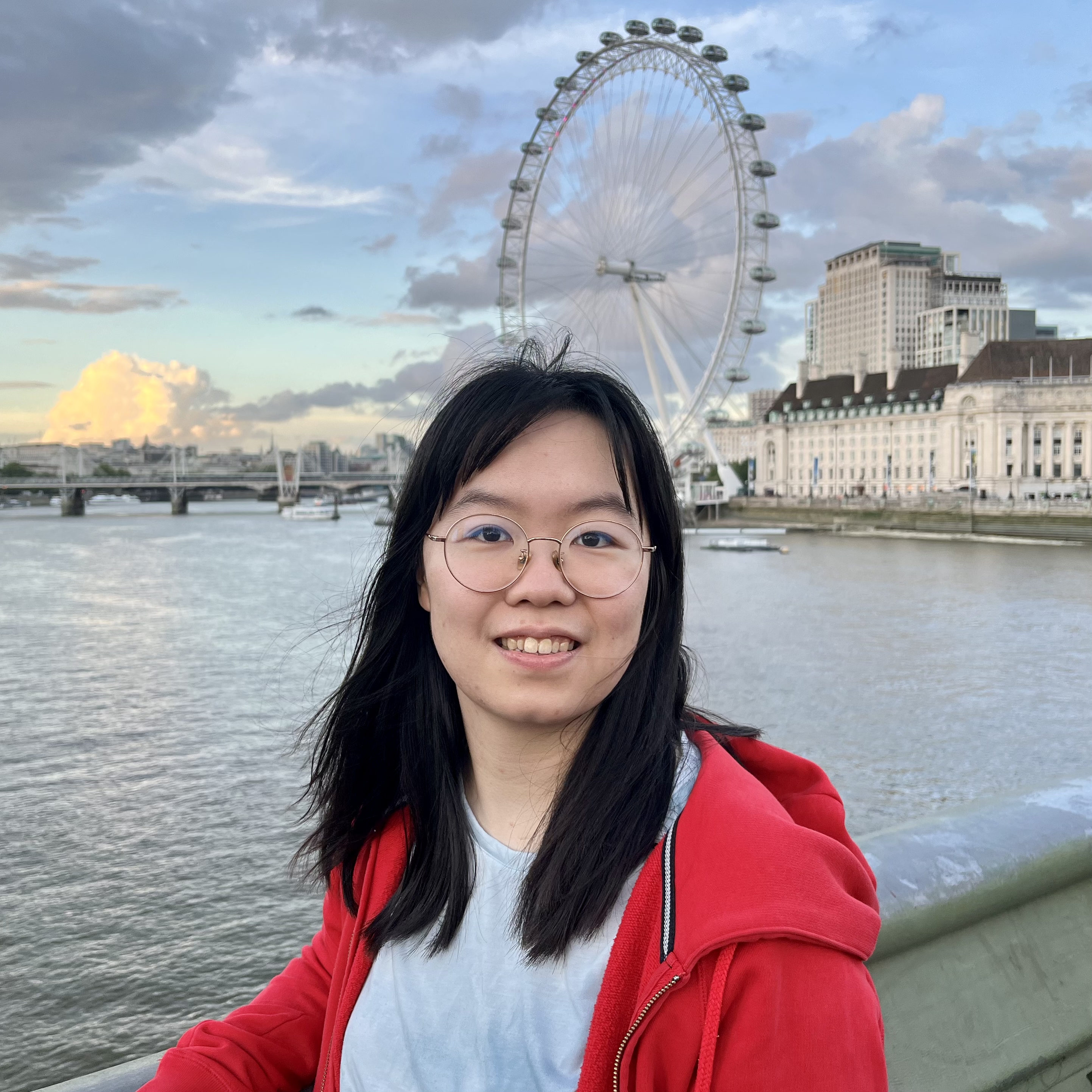
Room 2.11, Waddington Building, Kings Buildings Campus, Edinburgh
Yuxin Shen
Yuxin is an EASTBIO PhD student in University of Edinburgh, supervised by Dr Diego Oyarzun in Biomolecular control group. She is currently working on machine learning methods for cell optimization. Before starting her PhD, she obtained a BSc in Chemistry at Fudan University, and an MSc in Chemical Engineering at Imperial College London.
Research Interests
Yuxin’s research interests lie in the intersection of machine learning and synthetic biology, with a particular emphasis on deep learning methods for optimisation of protein production and the genotype-phenotype mapping problem. With deep learning pipelines, cellular behaviour can be predicted and used for radically improving strain performance. This could be helpful to accelerate cell factories development with a minimal experimental burden.
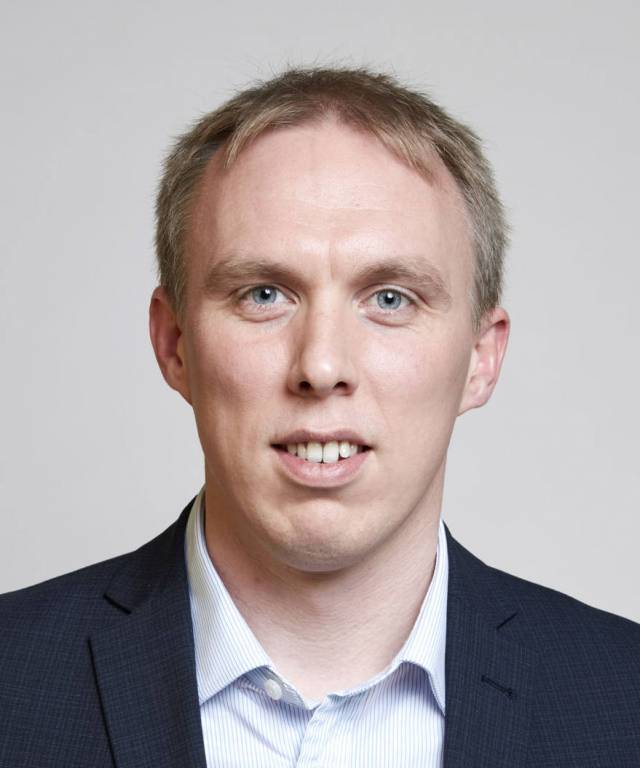
Life Sciences Building 24 Tyndall Avenue
Bristol, BS8 1TQ
Thomas Gorochowski
Thomas Gorochowski is a Royal Society University Research Fellow and Co-Director of the Bristol BioDesign Institute. Having received an MEng in Computer Science from the University of Warwick and PhD in Complex Systems Theory from the University of Bristol, he has since transitioned into the area of Bioengineering, working across both industry as a Marie Curie Fellow at DSM in the Netherlands, and academia as part of the Synthetic Biology Centre at the Massachusetts Institute of Technology, USA. In 2016, he established the Biocompute Lab at the University of Bristol to better understanding the computational architecture of biological systems from the molecular to ecosystem level with the goal of rationally engineering new functionalities across these scales.
Research Interests
Thomas’ research interests encompass a broad range of scientific areas covering both theoretical and experimental approaches to reprogramming living cells. At the Turing he is aiming to establish a community to explore Data-centric Biological Design that brings together advances in high-throughput experimental methods and data science to accelerate and guide more effective bioengineering practices.
Chris Barnes
Prof. Chris Barnes is a Professor in the Division of Biosciences within the Faculty of Life Sciences at University College London. Throughout their distinguished career, Dr. Chris Barnes has made significant contributions to multiple fields, including particle physics, genetics, statistics, computational systems biology, and synthetic biology. In addition to their research endeavors, Dr. Chris Barnes is passionately committed to training the next generation of researchers. They developed the BBSRC-funded e-learning resource SysMIC, designed to equip life scientists with essential computational and mathematical skills. Dr. Chris Barnes also plays a key role in running the EPSRC-funded Centre for Doctoral Training in BioDesign Engineering and the LIDo Doctoral Training Partnership.
Research Interests
Dr. Chris Barnes’s research interests are diverse and interdisciplinary, encompassing particle physics, genetics, statistics, computational systems biology, and synthetic biology. Their work aims to push the boundaries of knowledge across these fields, integrating advanced computational and mathematical techniques to address complex biological questions. Dr. Chris Barnes is particularly focused on developing innovative methodologies and tools to enhance the understanding and engineering of biological systems. Through their involvement in the SysMIC e-learning resource and various doctoral training programs, Dr. Chris Barnes is dedicated to advancing education and fostering the development of future leaders in the life sciences.
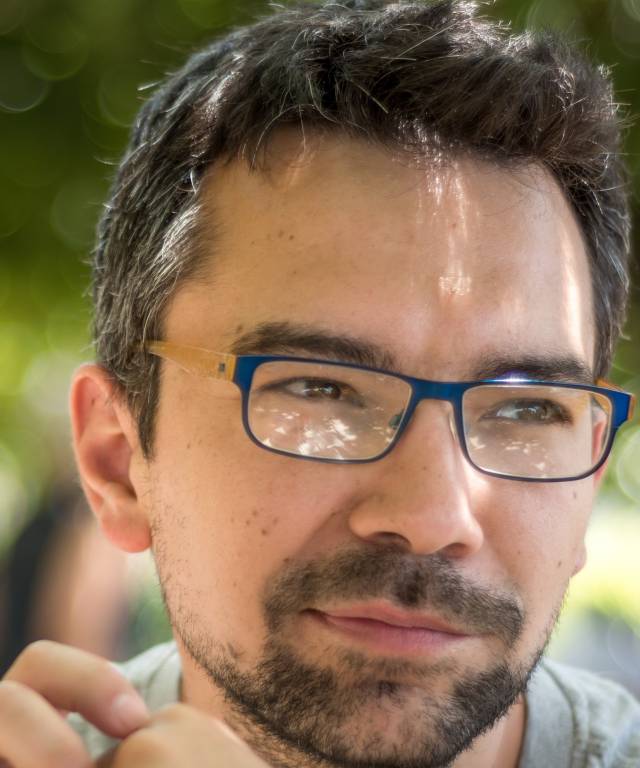
Diego Oyarzun
Diego is Reader in Computational Biology at the University of Edinburgh, with a joint post between the School of Informatics and the School of Biological Sciences. At Edinburgh, Diego holds various leadership roles including Deputy Director of the UKRI Centre for Doctoral Training in Biomedical AI, co-lead of the Science for Sustainability Hub, and Programme Director of the Cross-Disciplinary Fellowships at the Institute for Genetics and Cancer. He also had advisory roles with the World Economic Forum and the EPSRC Early Career Forum in Mathematical Sciences. In 2015 he was awarded a Young Investigator Grant from the Human Frontier Science Program and in 2017 he was selected as one of the 100 Young Global Changers by the G20 presidency.
Research Interests
Diego works on computational methods for the study of molecular systems in biomedicine and biotechnology. Some of his current projects involve data science for synthetic biology, drug discovery, genotype-phenotype mapping, and analysis various modalities of biomedical data. He leads the Biomolecular control group.
